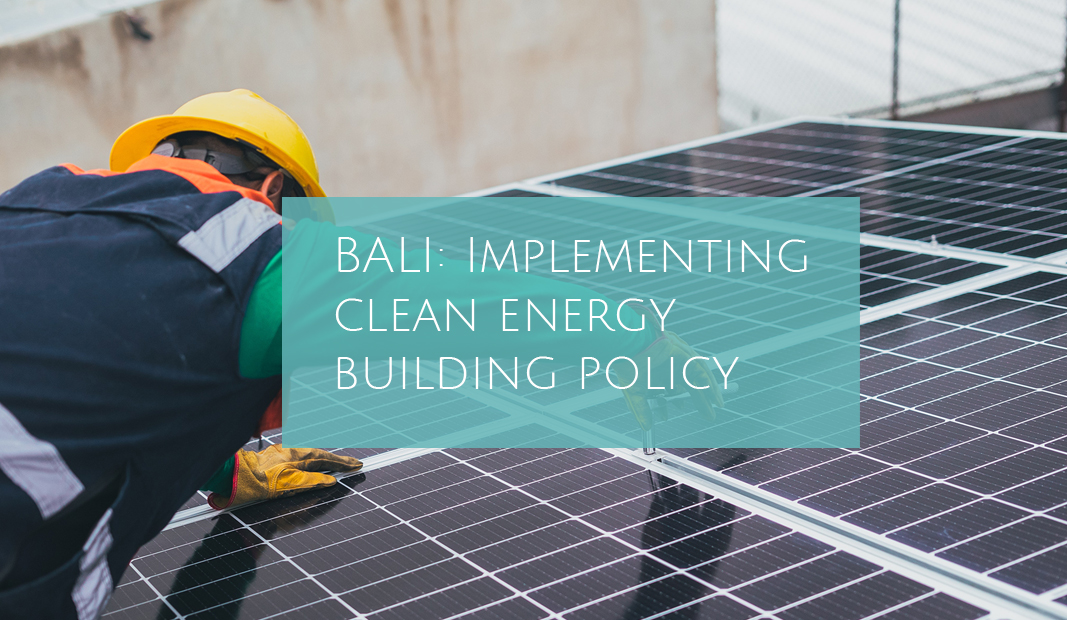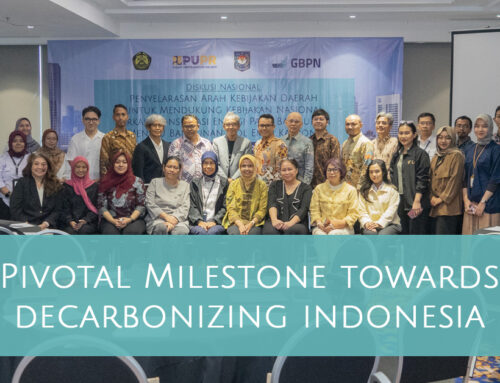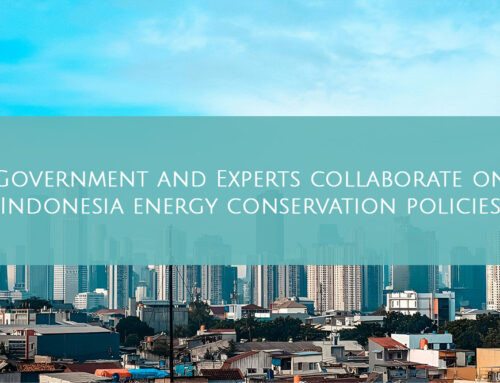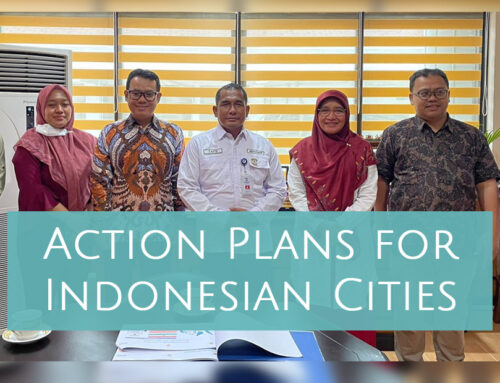GBPN is working to accelerate the adoption and development of green and energy efficient buildings in Bali.
GBPN team has partnered with the University of Udayana’s Centre of Excellence for Community Based Renewable Energy (CORE Udayana). Together they are supporting the development of a technical guideline for effective implementation of the Bali Clean Energy Governor Decree No.45/2019 in a project that has been endorsed by the Bali Provincial government.
The project is designed to be delivered in two phases.
- Phase one will develop a Technical Guideline for the implementation of the Bali Clean Energy Policy for the building sector.
- Phase two will see GBPN and CORE develop a set of recommendations for implementing the Bali Clean Energy guideline in two pilot areas – Gianyar Regency and Denpasar City.
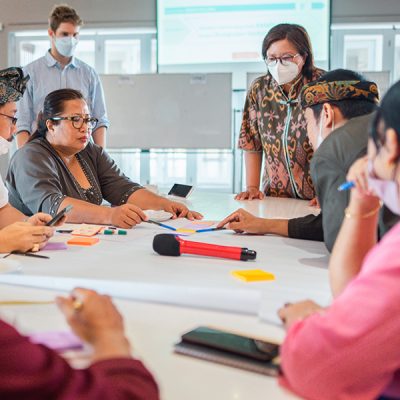 Prof. Giriantari, Head of CORE Udayana, said the university’s involvement would help the Government to make informed decisions and bring more stakeholders to the table.
Prof. Giriantari, Head of CORE Udayana, said the university’s involvement would help the Government to make informed decisions and bring more stakeholders to the table.
“Technical assistance from CORE and GBPN is supporting the Bali Provincial Government by providing evidence-based analytical works and best practices as well as catalysing involvement of broader stakeholders,” She said.
“Providing the government agency in charge of the policy with evidence-based analysis and bringing relevant stakeholders onboard to support the implementation are among the supports GBPN and CORE Udayana can provide”.
Yeni Indra, GBPN Sub-National Strategic Projects Lead, Indonesia, said the project was unique in two key ways.
“This was the first climate and energy efficiency initiative coming from the provincial government in Indonesia,” Ms Indra said.
“The implications of this project go beyond the implementation of clean energy policies in Bali. The work we are doing on the technical guideline has the potential to be replicated across other cities, and indeed across other provinces as well.”
Understanding local conditions

GBPN is working closely with two agencies on the development of the provincial technical guideline – Bali Province Manpower and Energy Mineral Resources Agency and the Bali Province Public Works, Spatial Planning, Housing and Settlement.
Ms Indra said, “This is the first time GBPN has worked at the provincial level in Indonesia so we have done a lot of work to make sure we understand the specific challenges and needs they have. We have conducted key stakeholder consultations to identify clear and effective recommendations to support policy reform actions.”
Ida Bagus Ngurah Arda, the Head of Bali Province Manpower and Energy Mineral Resources Agency, said Bali was serious about combating climate change.
“The Bali Clean Energy regulation proves the region’s commitment to combating climate change at its own level and resources,” He said.
“Bali is the first to launch a clean energy policy at the provincial level not only to anticipate the energy crisis but also to curb the impacts of climate change through optimising local renewable energy sources.”
Supporting the implementation of Bali Clean Energy Guidelines at the Municipal Level
Phase 2 of the project consists of delivering policy and technical support specifically for Denpasar and Gianyar as the pilot implementation of Bali Clean Energy implementation guideline for the building sector.
“The pilot project will include data collection and energy modelling to develop a baseline of energy use in buildings in each pilot area,” Ms Indra said.
“This baseline will serve as the key evidence for applicable green building measures and standards for more efficient energy building.”
The key outcome of the process at the municipal level is a set of green building technical recommendations in each pilot area.
Successful implementation needs comprehensive support
Learning from similar initiatives across the globe, successful implementation of green building policies needs comprehensive support, ranging from technical documents preparation to capacity building.
Ms Indra said, “GBPN’s comprehensive support spans across training, awareness-raising and capacity building for leading agencies and key stakeholders. This will help support the implementation and enforcement of Bali Clean Energy policy and green buildings adoption at both provincial and municipal levels.”
To ensure active and effective involvement of key stakeholders in Bali, a series of Focus Group Discussions (FGDs) were conducted to gather substantive and strategic information on the current issues of the building sector in Bali. Ms Indra said a bottom-up approach involving local communities, local government, and private sector representatives and GBPN’s community of experts would help determine best practices for green buildings in Bali.
“This collaborative effort aims to develop a set of requirements for building designs that will enable local governments to adopt them into their regulatory frameworks and encourage green building adoption and development.,” Ms Indra said.
The project is just one of the many that GBPN is working on to support Indonesia’s vision of a greener and low carbon emission building sector. With this project, GBPN, along with CORE Udayana, is at the forefront to support Bali Provincial Government to pave the way for local governments across the country to take concrete leadership in putting a stop to carbon emissions in the built environment.
Share This Story, Choose Your Platform!
Stay in touch with how we’re transforming the buildings sector
GBPN runs innovative building policy reform programs in key regions around the world that aim to tackle the climate emergency by decarbonising the buildings sector. Stay up to date with our newsletter.
Stay in touch with how we’re transforming the buildings sector
GBPN runs innovative building policy reform programs in key regions around the world that aim to tackle the climate emergency by decarbonising the buildings sector. Stay up to date with our newsletter.

